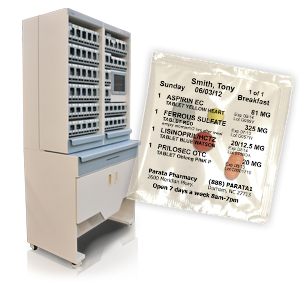The New York Times reported that nearly one in five Medicare patients returned to the hospital within 30 days of their initial discharge. In that first month, the patient has to begin a transition back into their regular routine, along with the application of their newly gained post-discharge treatment. These initial 30 days can reflect not only the quality of the care received at the hospital, but also the education provided to the patient in reference to their medication and can greatly affect their recovery.
For the past two years, Mercy Philadelphia Hospital has teamed up with SunRay Drugs, the Philadelphia College of Pharmacy at the University of Sciences, and Keystone First insurance provider, in order to enhance the progression of care from the hospital to home, particularly in the area of medication management so as to prevent hospital readmission.
This bond of organizations not only works together to dissolve the gap between home and the hospital, but also provide an even greater opportunity to further educate the patients enrolled in this program. From this opportunity, a direct correlation has been seen in readmission rates. As the patient’s medication knowledge is increased, their likelihood of being readmitted to the hospital can decrease.
 |
| Compliance Packaging: Integral part of any good MTM program |
Patients that are at a higher risk of readmission are identified and offered enrollment in a medication therapy management (MTM) with SunRay Drugs and the University of Sciences. Through these MTMs, clinical pharmacists uncover the patients’ individual drug therapy problems and work to adjust them. Follow-up appointments give the enrollee an opportunity to grasp a clearer concept of their medication, and assist in giving them the information they need in order to stay out of the hospital.
Mercy Philadelphia Hospital’s Director of Care Coordination Austin Reed and Clinical Pharmacy Coordinator Tom Turco are two key players in this initiative. They are aware of how vital the first 30 days of a patient’s discharge can be to a patient’s short and long-term future. The two also know that the involvement of family members often plays a major part in a patient having a smooth recovery process.
“The families are often the caregivers,” says Turco. “They handle affairs, and in some cases, may be more involved in the details of a patient’s medication, than the patients themselves.”
“We have completely changed our care coordination model in order to better suit the needs of patients. In addition to that, we have been working with other hospitals that are using similar systems, in order to increase our system’s efficiency as well, “says Reed.
“It is crucial that they are well-educated on how to manage their medications,” Turco says in reference to high-risk patients, most notably those that take numerous medications, those with difficulty accessing medications, patients with co-morbid conditions, and the elderly.
In these cases, medication compliance is key in a smooth healing process. The obstruction of one’s treatment can result in complications, morbidity, mortality, and increased healthcare costs. Factors such as low literacy or lack of health insurance coverage can be major causes of unsuccessful medication compliance. As a result, a greater chance of readmission may occur.
Mercy Philadelphia Executive Director Susan Cusack believes that with this connection, the level of care provided will reach an even higher level of efficiency. Cusack states that the patients now have more convenient sources in which they can receive their medication, and also meet with pharmacists.
“This partnership with external sources is vital. It demonstrates that here at Mercy Philadelphia Hospital, we care about our patients, not only when they are in our care, but even after their discharge.”
Since starting the program, Mercy Philadelphia Hospital’s 30-day readmission rates have dropped from 13.8-20.5 percent in January 2011 to July 2012, to 12.9-17.7 percent from November 2012 to February 2013. On a steady decline, the goal of the program is to have a readmission rate of less than 15 percent by the end of 2013.
To learn more about Mercy Health System, visit www.mercyhealth.org.
Read the full story: By Haywood Brewster